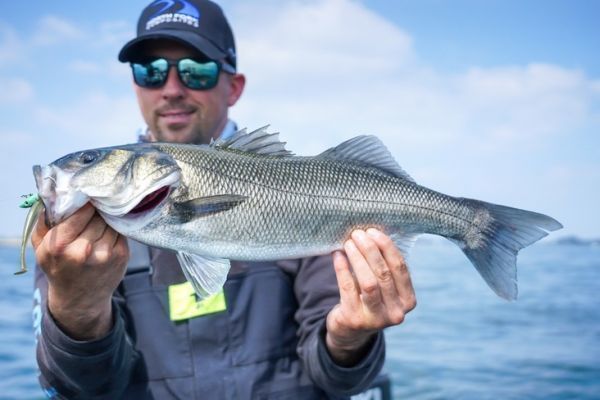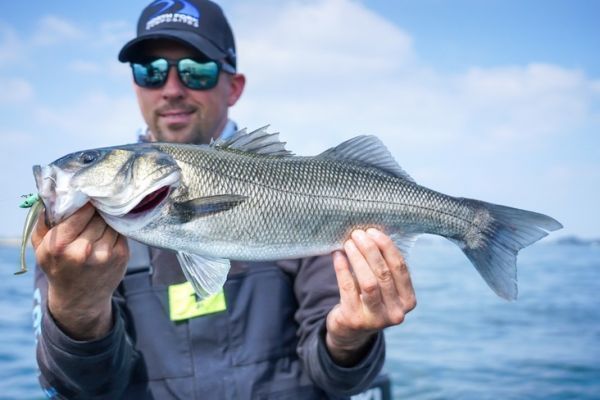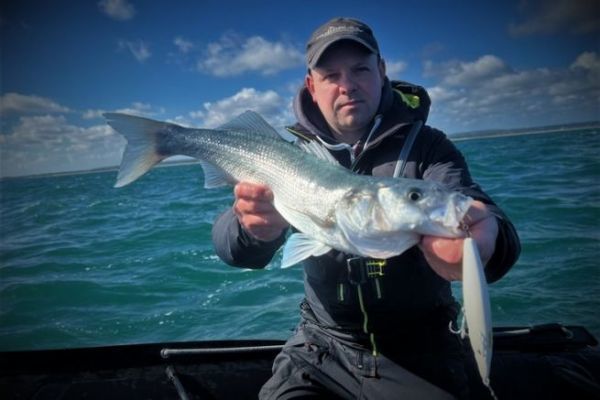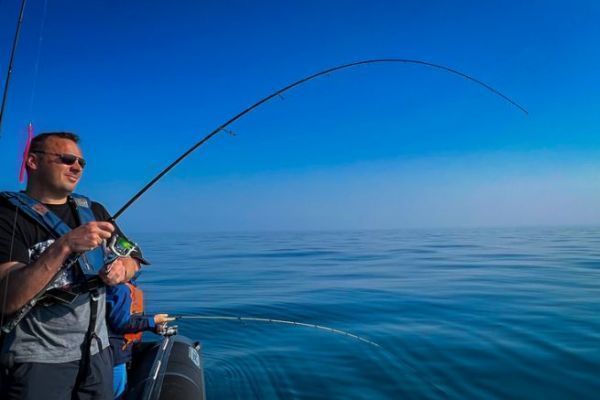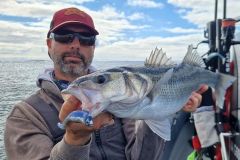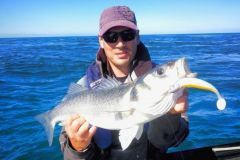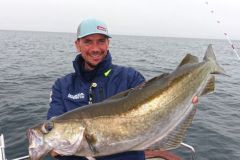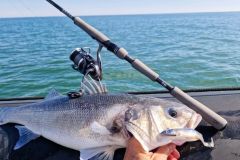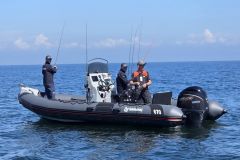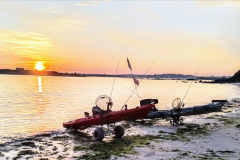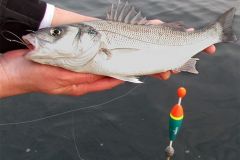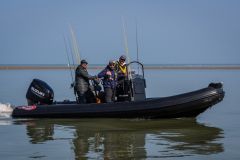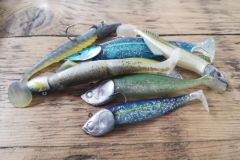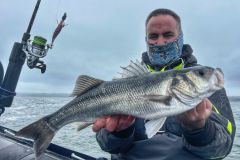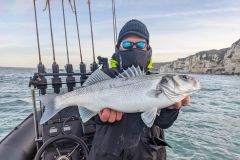Take your first bar
Catching your first sea bass is a moment that remains engraved in the memory of all anglers, whether from the shore or from a boat. The pleasure of the catch leaves its mark on us all. While some are capable of catching dozens of sea bass per outing, we mustn't forget that we all started with a single fish that gave us a special feeling.
Beginner anglers aim to achieve what we did so long ago. While for some it's easy to learn, for others it takes a little longer.
In a series of articles, we'll look at the different spots, techniques, equipment and tips to help you catch that first fish from a boat.
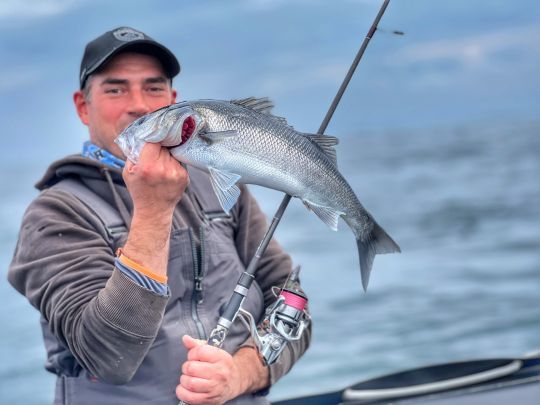
An all-in-one rod and reel set
Essential to your fishing success, this set should be as versatile as possible to enable you to vary your fishing techniques.
Throughout these articles, we'll only be talking about boat fishing, which has different constraints from those practised on board.
For this purpose, I recommend a 2m10 to 2m20 rod with 15 to 45g of power.
This will enable you to be versatile, using both soft and hard lures (swimfish or surface lures), as well as jigs.
As a reminder, when fishing vertically, you can double the casting power of your rod. This means you can use jigs of up to 90-100 g.
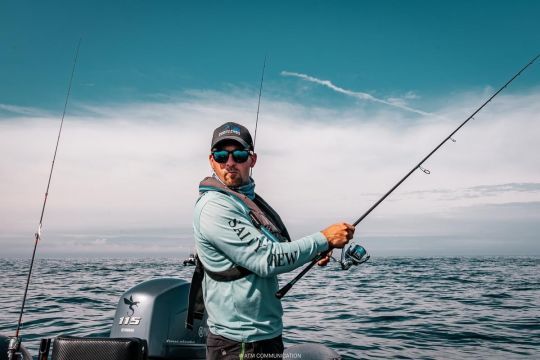
You can find a rod for around ?150 from your retailer or by turning to Rodbuilding via Rodhouse.
Some references include Rodbuilders Republic's PPS 73 MH and North Fork Composites' NFC SJ 705.
Which cane action should I choose?
As far as the action is concerned, there are several.
I recommend a modern action that's as versatile as it gets.
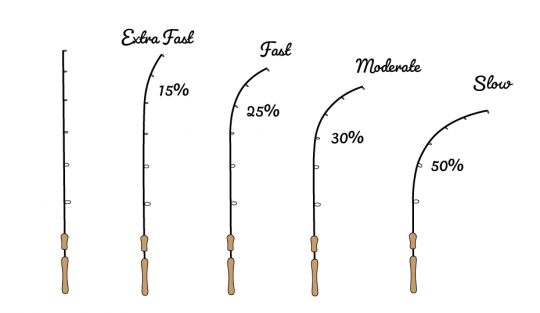
Fast actions are certainly the most resonant, but they limit the use of lures such as swimming fish, jigs or surface lures.
Another important point is that it's easier to reach longer casting distances with a rod with a moderate action.
Choosing the right reel for your rod
Reel sizes vary according to use.
For lure fishing, it's essential to have a high retrieve (about 1 m per crank revolution) and a precise, high-performance drag. This makes it possible to manage the fight as well as possible, while ensuring that the reel is not too heavy, so as to form a light unit with the rod.
Personally, I go for size 4000s, both classic and SW (saltwater) models. The latter are specially designed for saltwater fishing, offering superior protection against salt. However, they are generally heavier than the classic series.
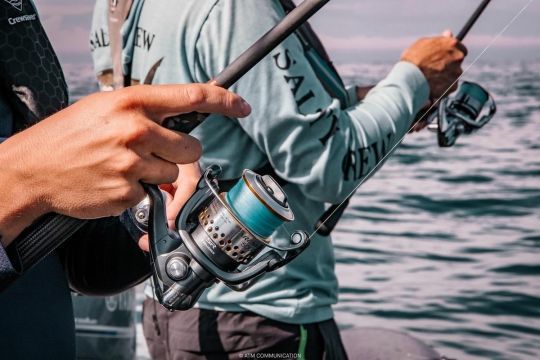
To stay within a reasonable budget, models like the Shimano Stradic 4000 or the Daiwa BG series are excellent choices. We recommend a reel weight of between 250 and 300 g for good balance.
This is a versatile set. Of course, you'll be able to fish for sea bass, but you'll also be able to fish for other species. We're talking here about a beginner who wants to get started. Later, with the desire to improve, you may consider investing in other equipment.
I've added a PE1 or 1.2 braid. Since this year I have turned to the Prodigy distributed by Rodhouse . After a season of intensive use, I've had nothing but good things to say about it.
A selection of simple but effective lures
This is an area that poses many questions for novice anglers: which lure should you choose for your tackle box? There's so much to choose from, it's easy to get lost. Turn to your local retailer for the best advice.
For my part, I've been putting my trust in two main brands for years.
I particularly like the Illex Nitro Shad in sizes 90, 120 and 150 mm.
The brand, Fiiish, with its Crazy Sand Eel and Crazy Paddle Tail in sizes 120, 150 and 180 mm. And of course, the one that needs no introduction: the famous Black Minnow in sizes 120, 140 and 160 mm.
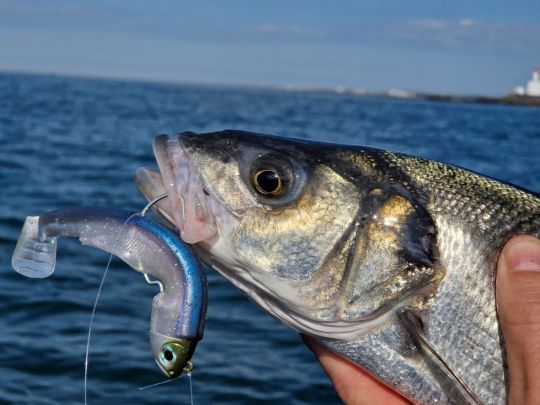
As for colors, I'm sticking to the classics: blue or khaki, so as not to diversify too much.
Don't forget to add one or two swimming fish (Tide Minnow, Duo Hacker) and two surface lures (Super Spook and Asturie are good values).
Finally, a few jigs weighing from 30 to 75 grams complete this perfect box for beginners.
You're all set, ready to take to the water and try your hand at catching your first sea bass. Which spot should you choose to try your luck? We'll look at that in the following article.

